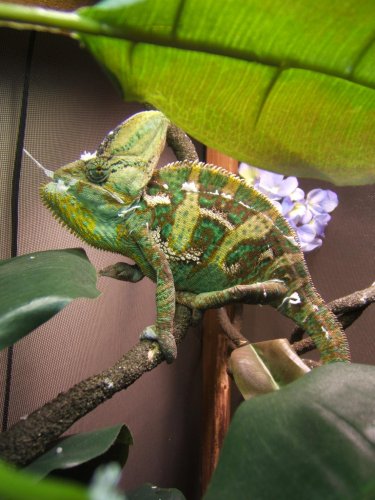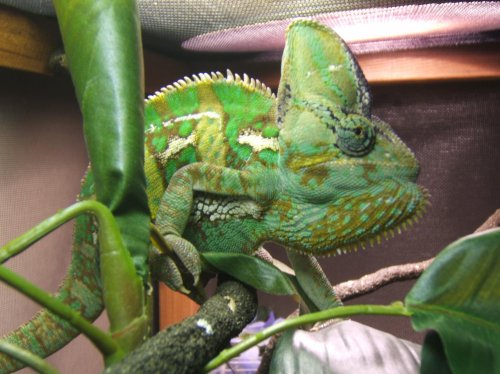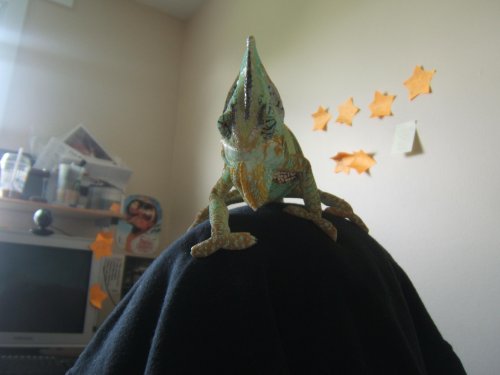I don't think that the coccidia in this case are the direct cause for the declining health. Adult chameleons with a minor coccidia infestation, will live on for years untreated, assumed that they are in good condition and the husbandry is correct.
I'm more concerned about his dietary condition. He appears to be a bit on the chubby side imo. Because the abdominal fat storage of chameleons is directed to the interior, one usually identifies a fat chameleon when it's to late.
A lot of people don't seem to understand that reptiles have a completly different metabolsim then we have, thus feed their animals to much and to often . I also scepticaly observe the trend in the US of feeding waxworms, hornwors, silkworms and other larvae, that all contain a significant amount of fat. If you have look at what chamelons eat in their natural habitat, you will see that this "fastfood" seldomly is on their menu. This is one reason why I propagate for wildcaught bugs.
Hope he gets well soon, I'll keep my fingers crossed.
I'm more concerned about his dietary condition. He appears to be a bit on the chubby side imo. Because the abdominal fat storage of chameleons is directed to the interior, one usually identifies a fat chameleon when it's to late.
A lot of people don't seem to understand that reptiles have a completly different metabolsim then we have, thus feed their animals to much and to often . I also scepticaly observe the trend in the US of feeding waxworms, hornwors, silkworms and other larvae, that all contain a significant amount of fat. If you have look at what chamelons eat in their natural habitat, you will see that this "fastfood" seldomly is on their menu. This is one reason why I propagate for wildcaught bugs.
Hope he gets well soon, I'll keep my fingers crossed.









